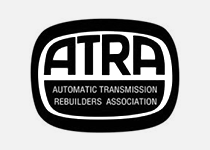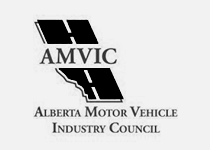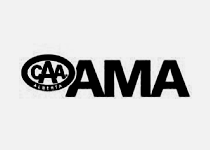Some Straight Talk About Automatic Transmission Repair
Transmission repair can cause a lot of anxiety for most people. That’s because it doesn’t usually happen too often, and when it does, it means you’re being asked to spend a lot of money for a problem that you probably don’t understand all that well. So let’s see if we can clear up some of the more common questions and misconceptions about transmission repair for you…
There’s no doubt about it: Transmission repairs can be expensive. But it’s not so much money when you consider what’s involved in the repairs.
Today’s automatic transmissions consist of several hundreds of parts. During a major repair, each one is removed, cleaned, and inspected to exacting tolerances. Any worn or damaged parts are repaired or replaced.
Then each part is put together into one of many subassemblies. Each subassembly must be adjusted, and tested for proper operation. Then the subassemblies must be assembled into the transmission case, where the adjustment and testing procedure begins all over again.
Finally, once the transmission is completely assembled, it has to be reinstalled.
If that’s not enough to justify the cost, there’s something else to consider: Virtually all of today’s automatic transmissions are computer controlled. This means that the transmission’s ability to operate depends on much more than the condition of the transmission itself. Engine problems now can have a dramatic effect on how the transmission operates.
All of which boils down to one, inescapable conclusion: Sure, transmission work can be expensive… but, dollar for dollar, it’s one of the best values around.
20-or-so years ago, there were only maybe a dozen different transmissions on the road. Every transmission repair shop had a good stock of rebuilt units on hand. There were almost no updates necessary, and even if something unusual failed, most shops had a good supply of used parts on hand to replace it.
Today there are more than ten times that many transmissions in use, with new ones showing up all the time. Many of those transmissions have several different variations or calibrations, with as many as a dozen modifications necessary.
What’s more, today’s transmissions are computer controlled, which means even though your transmission may not be working properly, there’s a good chance the root cause of the problem doesn’t have anything to do with the transmission itself.
To provide you with an accurate assessment of your transmission’s condition and give you an honest estimate for repairs, technicians must perform a series of rigorous tests.
They must identify which transmission is in your car, and which version of that transmission it is. Then they have to identify the specific problem, and isolate whether it’s in the transmission or the computer system. Finally, they have to determine the likely causes for the problem, based on a logical diagnostic process.
Once they have that information, the shop is able to give you a more accurate explanation of your car’s condition, and put together an accurate estimate of the costs to repair it. There’s just no way to do all that over the phone.
One of the first things you can look for is technician certification. These are certificates indicating that the technicians have passed tests to prove a level of competence in one or more areas of automotive repair.
The most common certification is the Certificate of Proficiency as an Automotive Technician. The other certificate that you can look for is the Alberta Motor Vehicle Industry Council (AMVIC) License. These certifications cover theory, diagnosis and repair procedures in virtually every area of the vehicle.
In addition, many manufacturers and organizations offer some type of certification program. And while certification is no guarantee of competence, it does indicate a certain level of pride and professionalism.
But no one offers a more detailed or extensive certification program than the one that ATRA offers its members. There are three types of ATRA certification: R&R Technician, Rebuilder and Diagnostician.
ATRA’s tests are extremely demanding: You can be certain that any technician holding an ATRA certification is qualified to work on your car or truck.
There are a number of ways you can learn if a repair shop is trustworthy or not. One way is to ask for references from people who have been there before. Another is to check with your local consumer protection agency, to see whether they have any records of misconduct by the shop.
In the case of a transmission shop, you can also ask for recommendations from your general repair shop: They’ll usually know a nearby transmission shop they can recommend.
But one of the best ways to make sure you can trust the right shop with your transmission repairs is to take your car to an ATRA-member repair centre. Because the ATRA logo is the symbol of excellence and professionalism in the transmission repair industry.
ATRA members are required to maintain an ethical standard unsurpassed in any service industry. These standards require ATRA members to provide honest diagnoses and repairs at a fair price. And ATRA backs that up by providing an arbitration process, to assure you of the highest level of ethical treatment.
ATRA has nearly 2,000 members, coast to coast — over three times the number of centres in the next largest organization. So wherever you go, anywhere in the U.S. or Canada, there’s an ATRA-member repair centre nearby.
(It’s always important to understand the details of any warranty. Ask your local ATRA member to explain the specific conditions of this warranty program and how it applies to the work you need on your automatic transmission.)
Sure, transmission problems can cause a lot of anxiety. But now you can rest easy, because you know you’re going to receive fair, competent service when you take your automatic transmission repairs to an ATRA-member repair centre.




